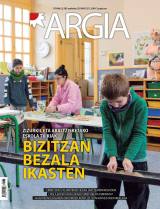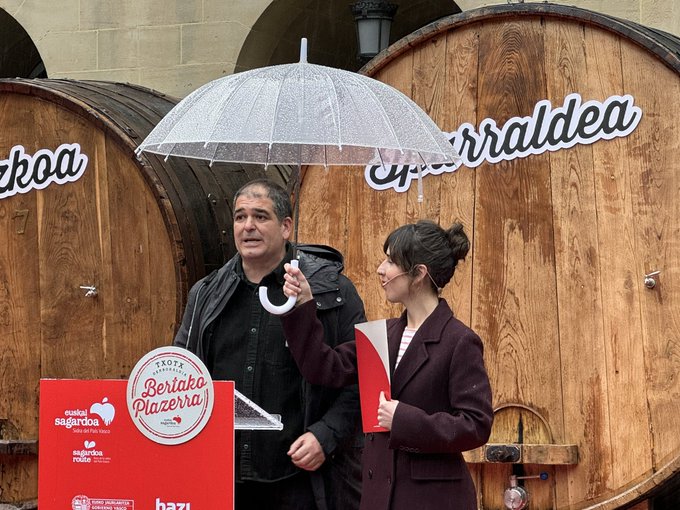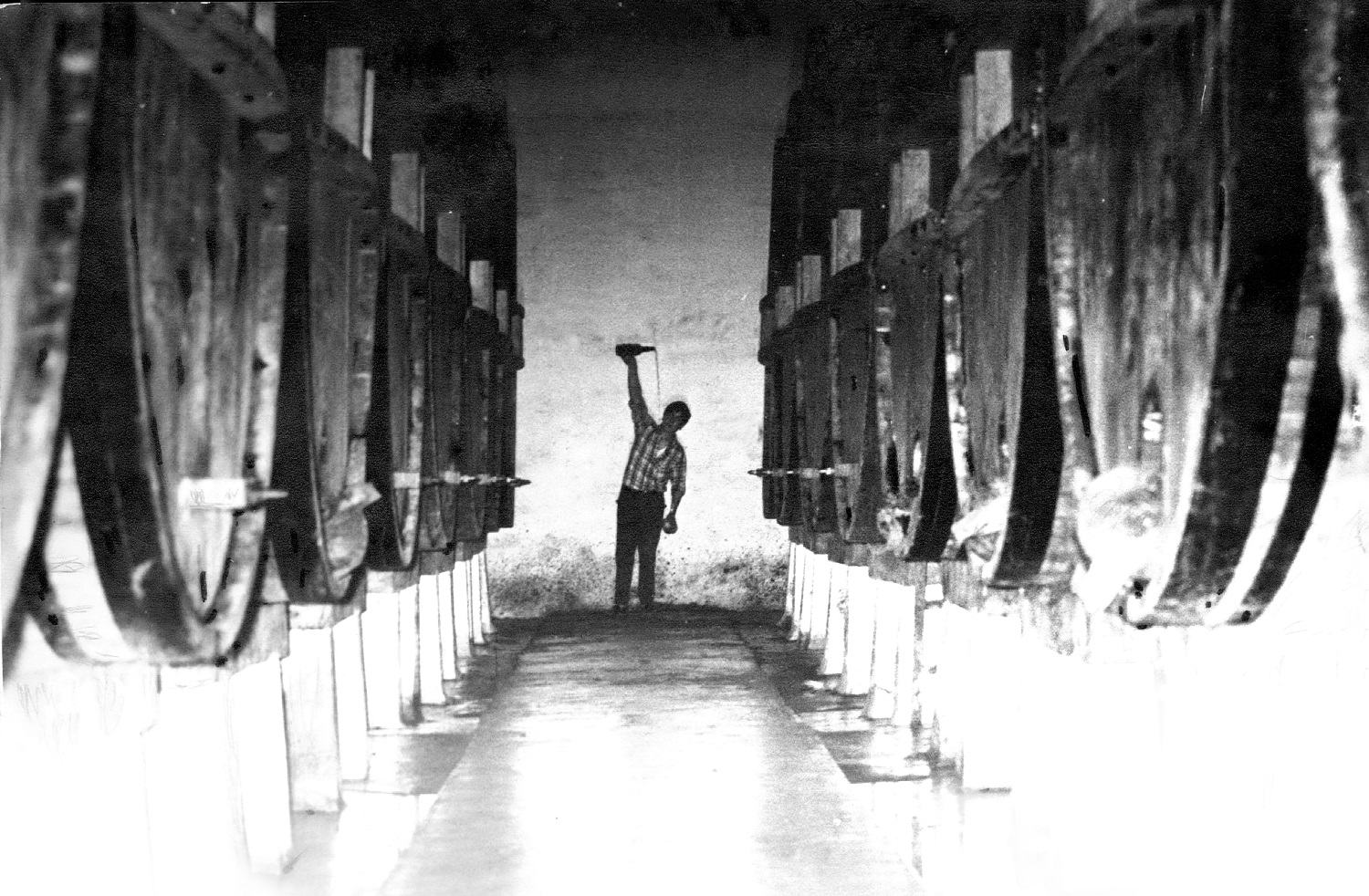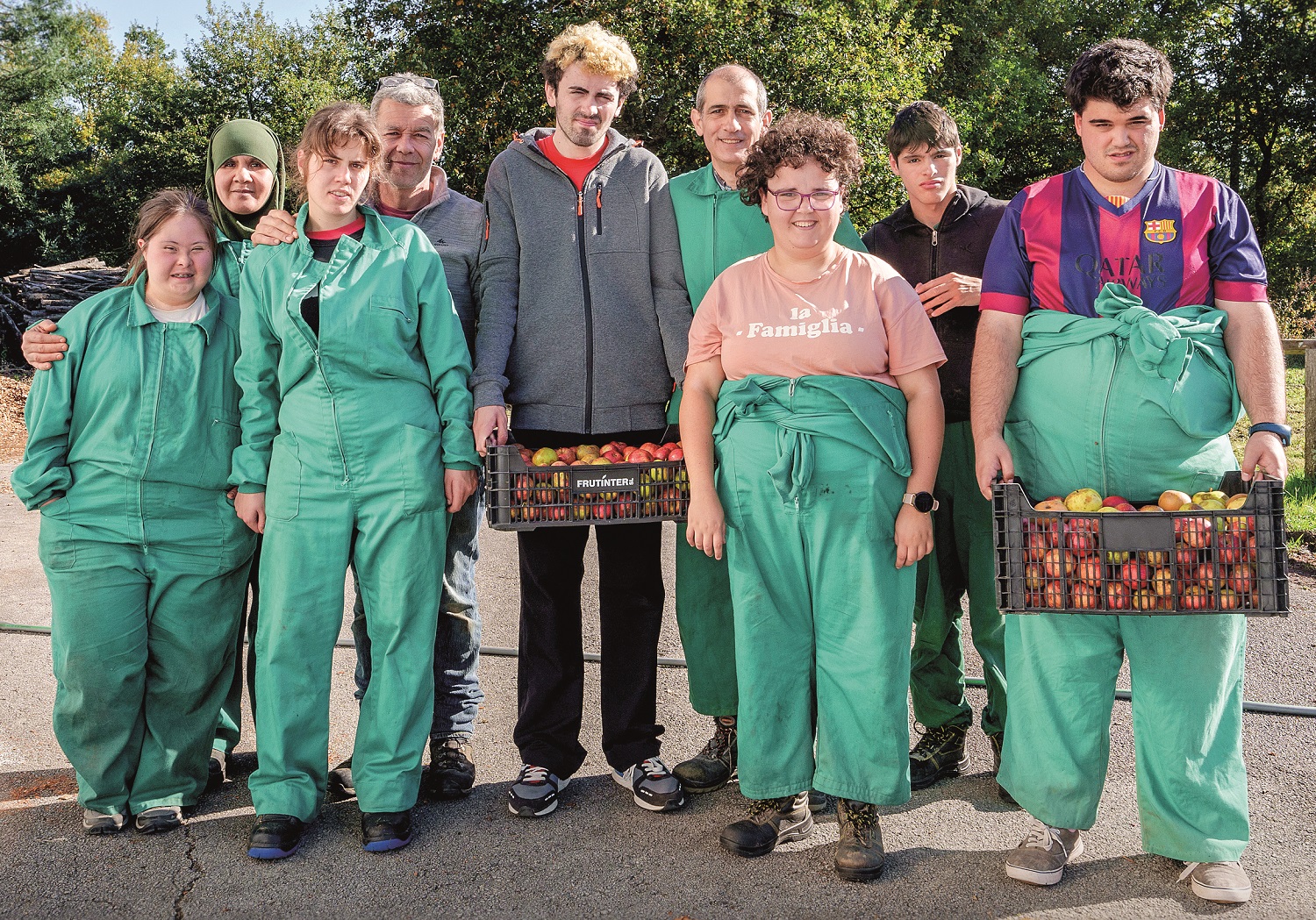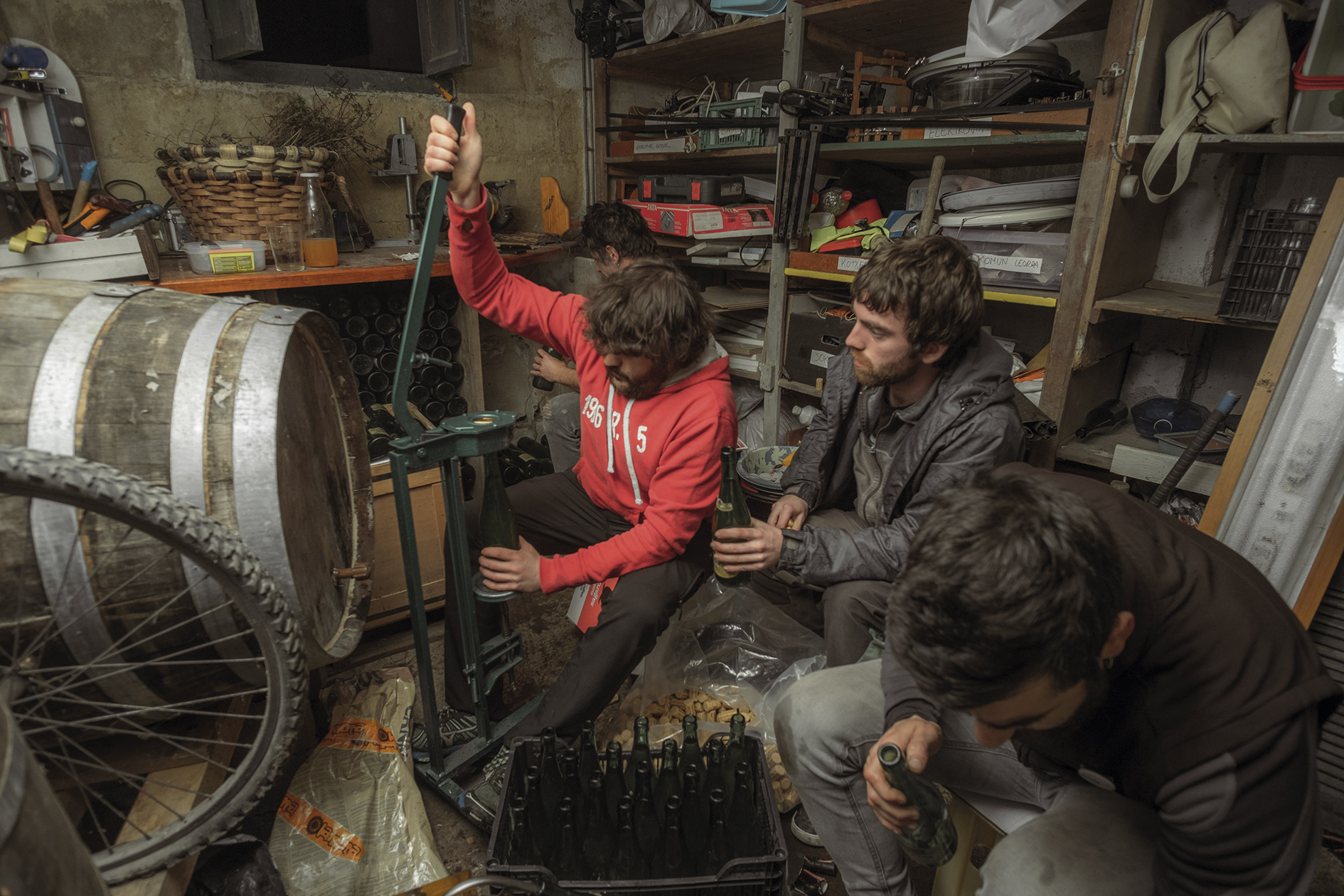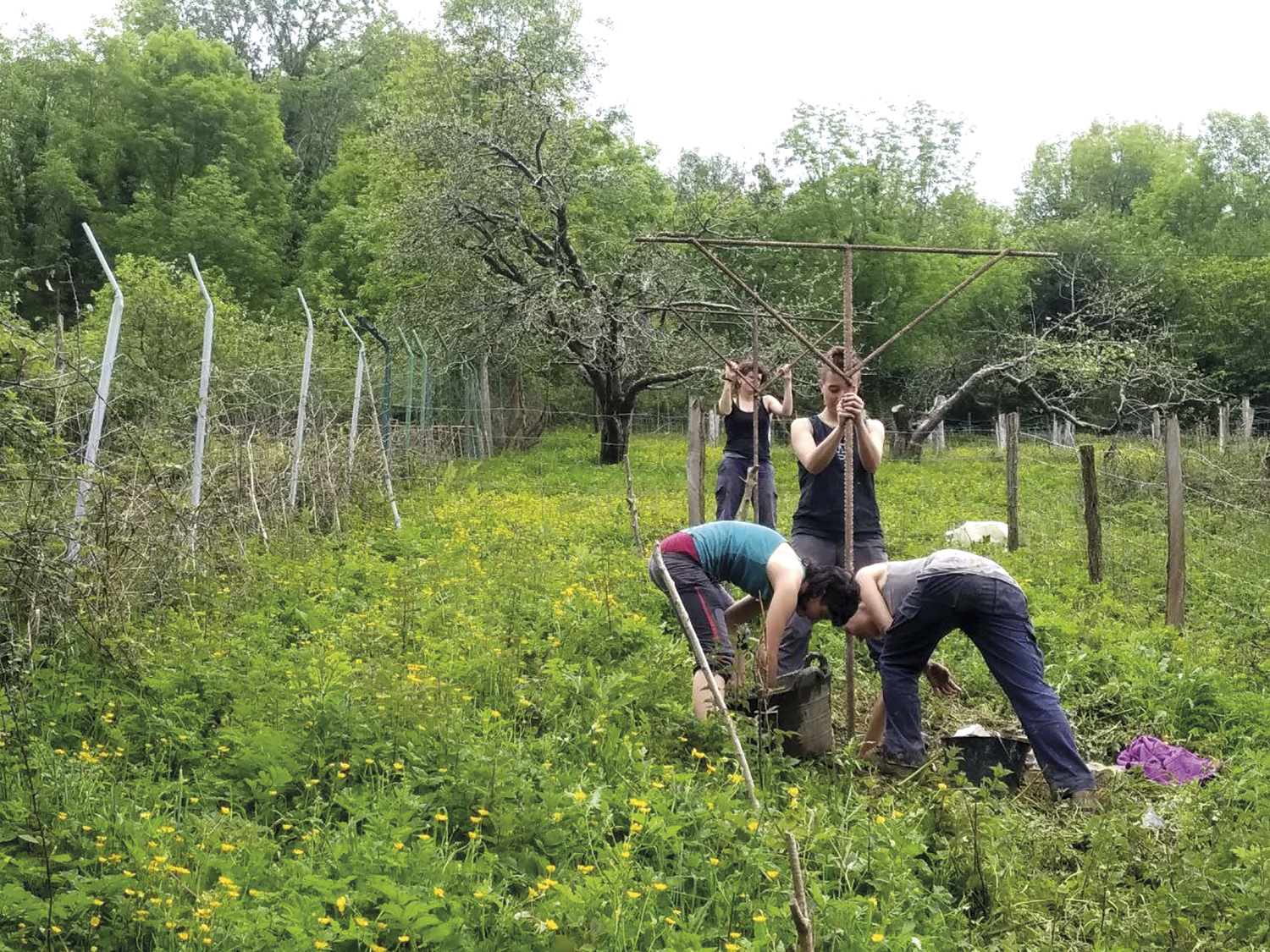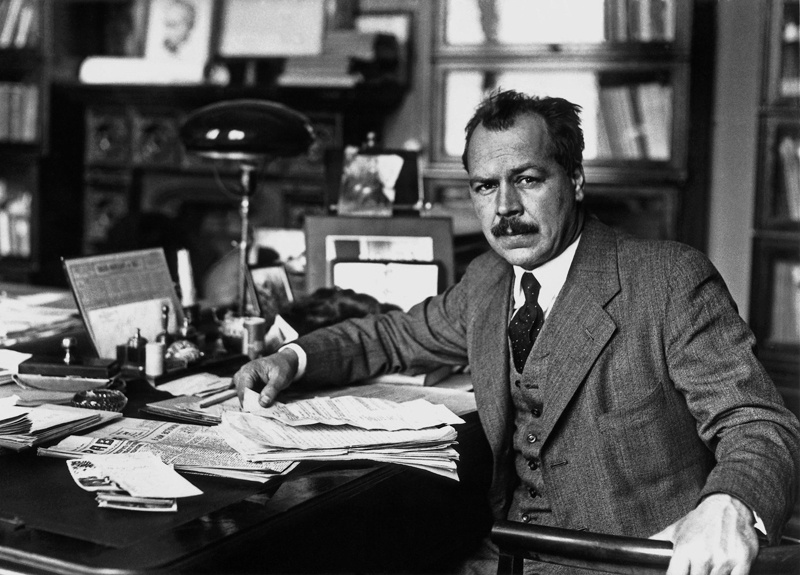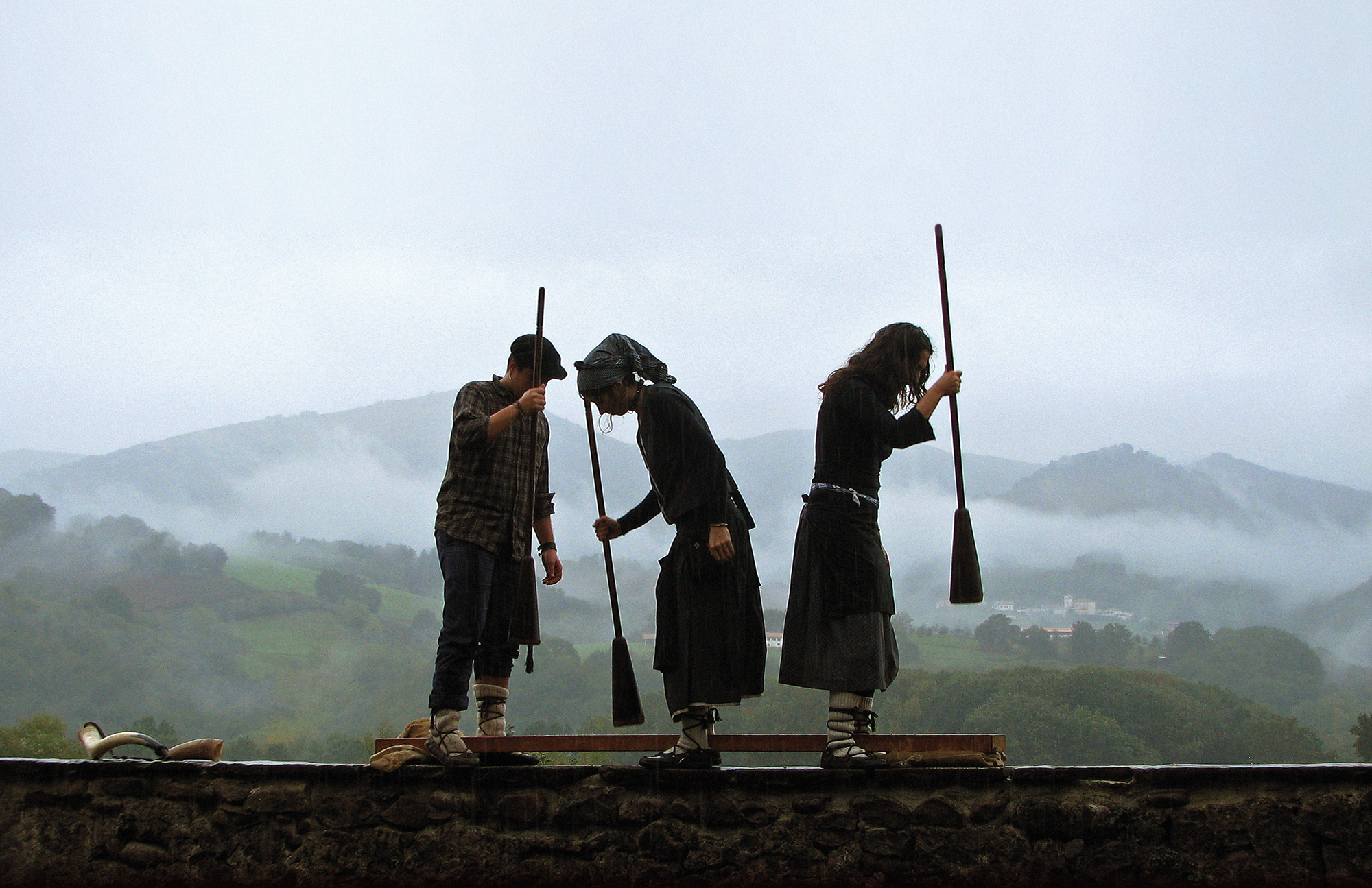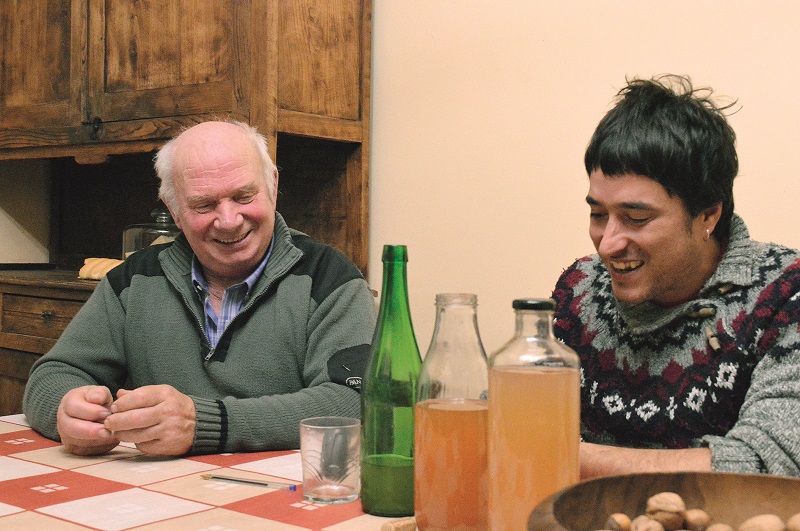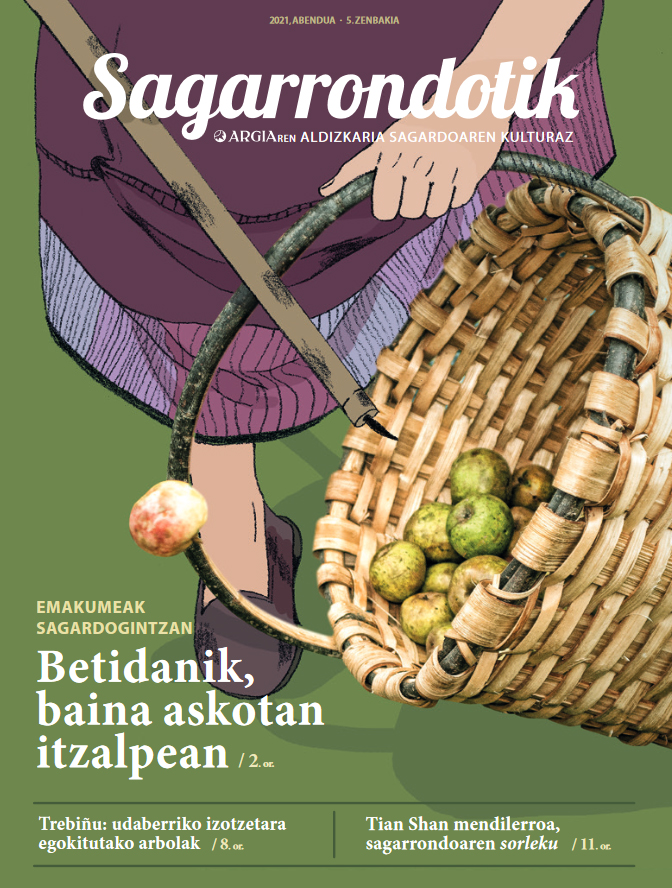"To unite Bertsolaris with the world of quarrying or the world of the tavern is not bad"
- The verse and the cider come together as the priests join the wine. Two different but very interrelated worlds. Unai Agirre has one leg in every world. On the one hand, Euskal Sagardoa is the managing coordinator of the Euskal Sagardoa Designation of Origin and on the other, she has participated in the final of the Bertsolaris Championship of Euskal Herria. We have met with the Hernaniarra without leaving the orbit.
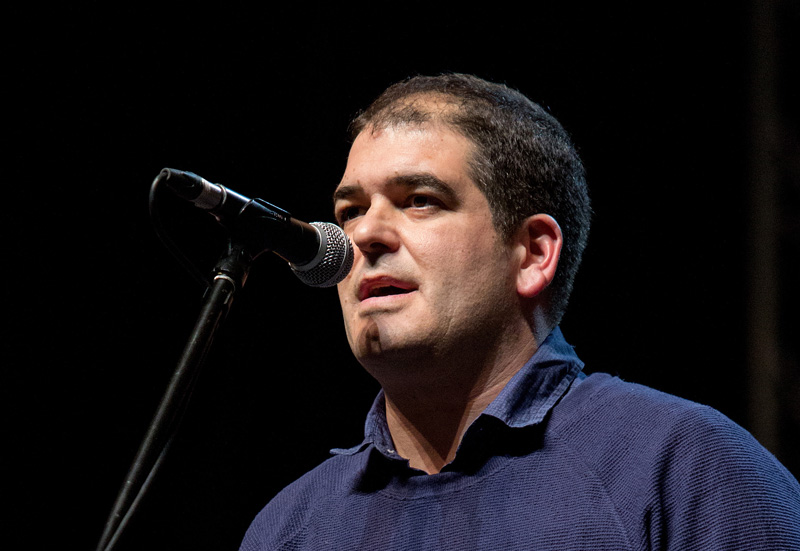
The harvest has been good both in the chamomiles of Euskal Herria and in the Bertsolaris Championship of Euskal Herria.
Yes. The apple is not something that we control, but it has been. This year it was the year of the apple; it was the largest year in history and, moreover, it was the second harvest of the designation of origin. Many quarries have entered this name, in Euskal Sagardo, and that has given me joy.
As for the other harvest, this time I have achieved almost what I achieved four years ago. I had no special obsession, but after I got it, I was glad I didn't think I was going to have that opportunity again. As the championship was going, I was quite comfortable, but without completely finishing and good, in the end, when I least thought, it came.
Those of us who have been in the bertess training with Unai Agirre, we know that Unai is hanging from the phone, has put some bertsos on us and has returned to hang us from the phone. What work does Unai do?
That would be 60 percent of my job. It can be carried in one way or another, but I usually carry the phone and the office on me. I often find it hard to disconnect, but I also know how to make it calmer at the same time. Many times, talking and fixing things is an important part of my work.
The Designation of Origin is a public private entity. This means that a designation of origin is that of sidreros and sidreros, and in our case, this is recognized in the statutes. But all this is regulated by a Regulatory Council, in which the institutions (government and the three Members) participate without a vote. The cider sector has 50% of the voting rights and the cider sector has another 50%. The designation of origin is the designation of origin. My task is to bring the coordination of this Regulatory Council.
Did you expect to reach this point in the cider world a few years ago?
Some of them were very clear and I, too, had it, that it was an important step, that I had to cider. By the year 2000, some stewards began to meet in Gipuzkoa and Bizkaia in search of a Designation of Origin. For one thing or another it was not achieved. Subsequently, the Eusko Label was created, aimed at the designation of origin. In addition, other Syros, who were not present in the Eusko Label, from Gorenak, have shown their interest in the designation of origin.
So, answering the question: yes. But it's true that until you see it, you can't say it for sure. Now you see, we have the second harvest and 47 wineries have entered. It's a lot! That means there was interest.
Has the cider world changed a lot in the last 100 years?
Just as in 100 years, because we have to think that of those sidrerías that we have not known, of those sidrerías that were in the village, there was a great decline and that we know the sidrerías that have been replaced. There are two main things in this recovery: on the one hand, gastronomic societies and bars start with a demand for cider and from there the txotx is born. They go to the places where cider is made to test it, which increases production for bars and restaurants. And the second step comes from the environment that generates that habit of going to try. A txotx culture so famous today: go to the sidrerías and try the cider. A gastronomic culture is born in its surroundings. This is the most important change that has taken place in the last 100 years.
Now, in my opinion, another big change is happening in the cider world. This designation of origin is intended to reinvigorate bottled cider, with a designation of origin which, moreover, focuses on the product produced and quality. This means that they're planting new apples.
Is that new? This is not new! This is 100 years ago and taking our story back. We go to the old varieties and we recover the work done earlier.
And another thing we're going to see is that we're going to have a whole range of product diversification. The new products will go to the market, we are already seeing it, but this has only just begun, it has no brake.
Therefore, returning to the base is not a setback.
Going back to the base is going ahead. Cider has to start from the indigenous raw material and leave everything well defined, i.e. the indigenous cider is made from native varieties. They are varieties that have been here for thousands of years, which means that they are good for processing and production, but they are also differentiated varieties for the making of our cider. This gives the product the importance it needs.
In addition, another wide range is opened on these varieties. They could be leveraged to do thousands of things, not just this form of natural cider that we know right now.
That doesn't mean it's going to be better, is it?
Better and worse… I would never use those words, but it will be ours and very good. It's not the same to work with an apple here or an apple outside. That must be made very clear. Our cider has been made from native apples and not only because it's there, but for years and years, because they've been grown here. I think that is very important.
Since when does bertsolarism combine with cider?
The bars were the bars of yesteryear. Then there were no bars. This has been the case for many years and not just in Gipuzkoa. Also in Bizkaia, Álava, Navarra and Iparralde. Then, every day the Bertsos were held in quinceañeras and there was neither television nor radio nor anything. In addition, there was a habit and so it has come to our ears: they would leave the house to the cider, because normally when the cider came the kupelas would open and until the cider was finished the kupelas would not be opened from another cider. People didn't come home three or four days later. Many were bertsolaris, people who were leaving and singing bertsos.
“Our colleagues, you’d sidrerías” When Udarrangi threw it out, I meant that. They were always singing in the blacksmith's shop. So, there's that connection. Today? In the context of our bertsolaris school, this assistance has been maintained to the blacksmith.
Has it not harmed Bertsolarism, which has been linked to this world?
I do not think so. If Bertsolarism has something good, it can relate to different worlds. I’m not Bertsolarism who believes it’s bad to bond with that world of bar, I wouldn’t… Quite the opposite. It seems to me that it is very good and there is a dark world with which you have to bring the bertsos and that it is very good. This does not mean that it should not be opened elsewhere.
Bertsolarism would also have evolved as much as the quarries in these years…
Yes. We know the evolution of Bertsolarism. However, we have to think that, like cider, it is our time that seems most to us, but Bertsolarism has influenced a lot for many years, even going back centuries. The first references we have can be from Etxahun, from Pernando Amezketarra, from Zabala, from Txabolategi in Hernani… Imagine the importance of bertsolarism if the bertsos of that time have come to us. The ears of the Basque have always been wet with the bertso. And the same with cider. If we go back 500 years, production was much higher. That means that the golden age was then and now we are returning to another important era. This is cyclical. The important thing is that you are alive and fit your time.
What are the challenges they face from now on?
Cider has to be reinvented and adapted. I think you can do nice things because you have to open the doors, and the biggest challenge is to get you to have the presence you need in the bottle. Two things are fundamental: the quality and local product must be strengthened and, on the other hand, dissipation. The product must be dissipated and put in value.
On the other hand, I believe that Bertsolarism has a very good path and that it has to adapt to the demands of the time. It does a very important bridging job, because it's always open to new things without losing the previous one.









